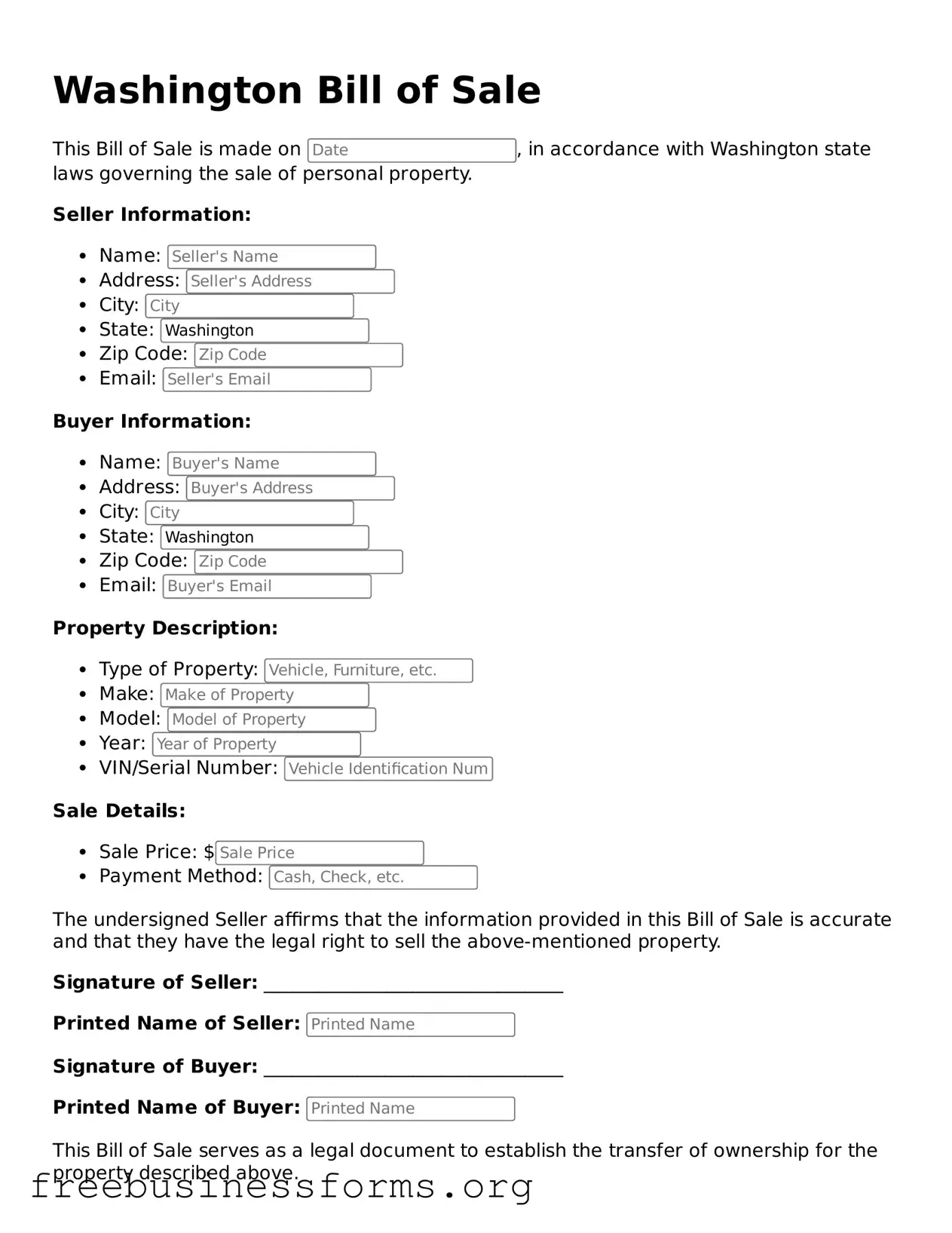Blank Bill of Sale Template for Washington
A Washington Bill of Sale form is a legal document that serves as proof of the transfer of ownership of personal property from one party to another. This form is essential for both buyers and sellers, providing a clear record of the transaction. It helps protect the rights of both parties involved and ensures that the sale is conducted in a transparent manner.
Open Form Here

Blank Bill of Sale Template for Washington
Open Form Here

Open Form Here
or
↓ PDF File
Quickly complete this form online
Complete your Bill of Sale online quickly — edit, save, download.